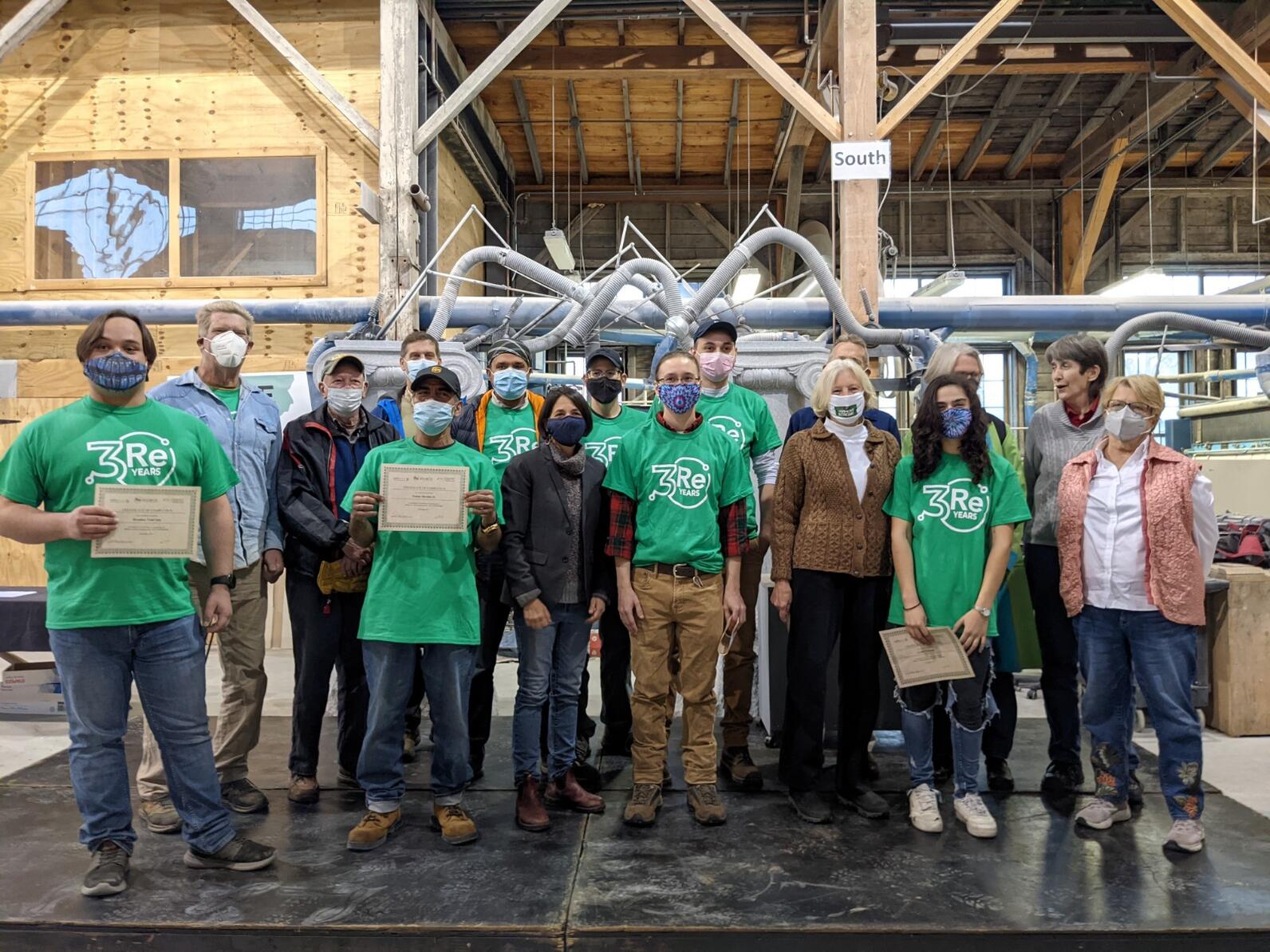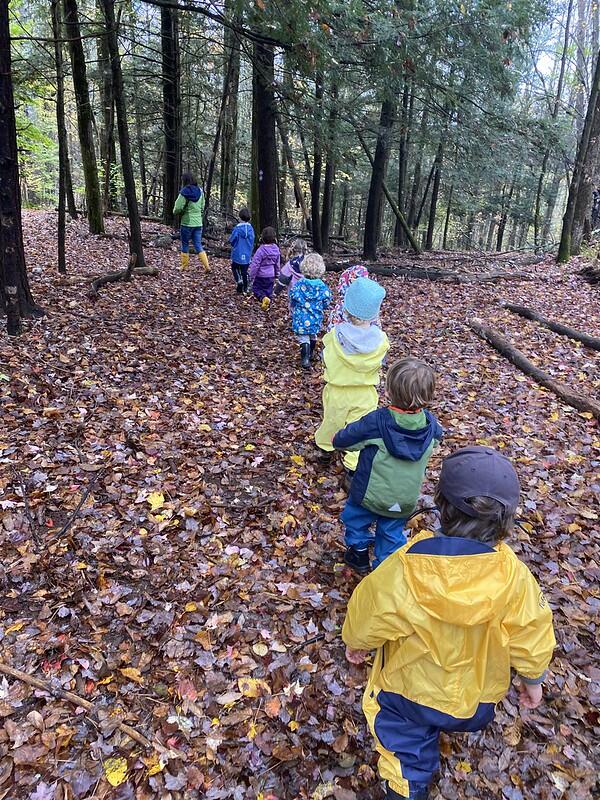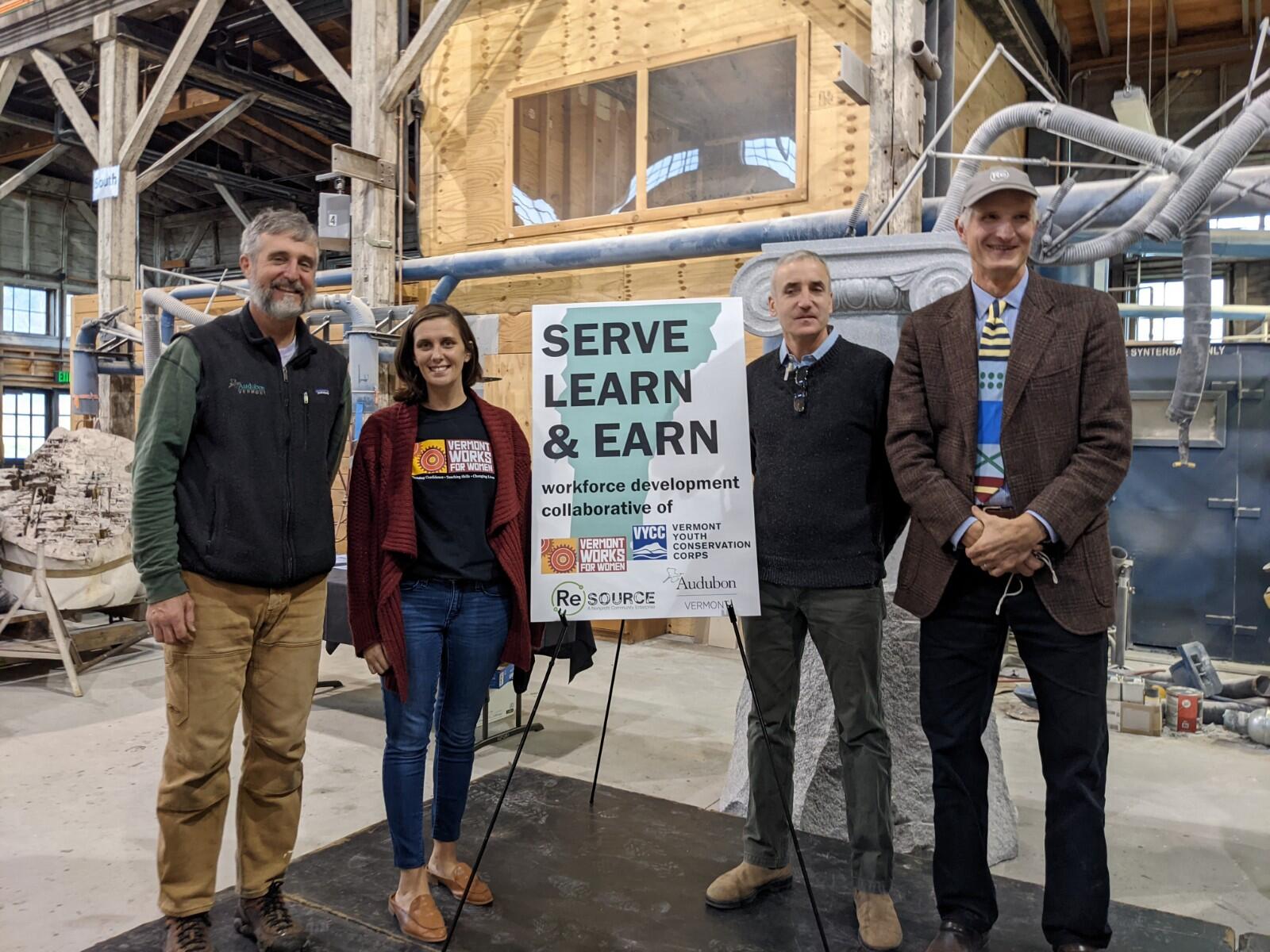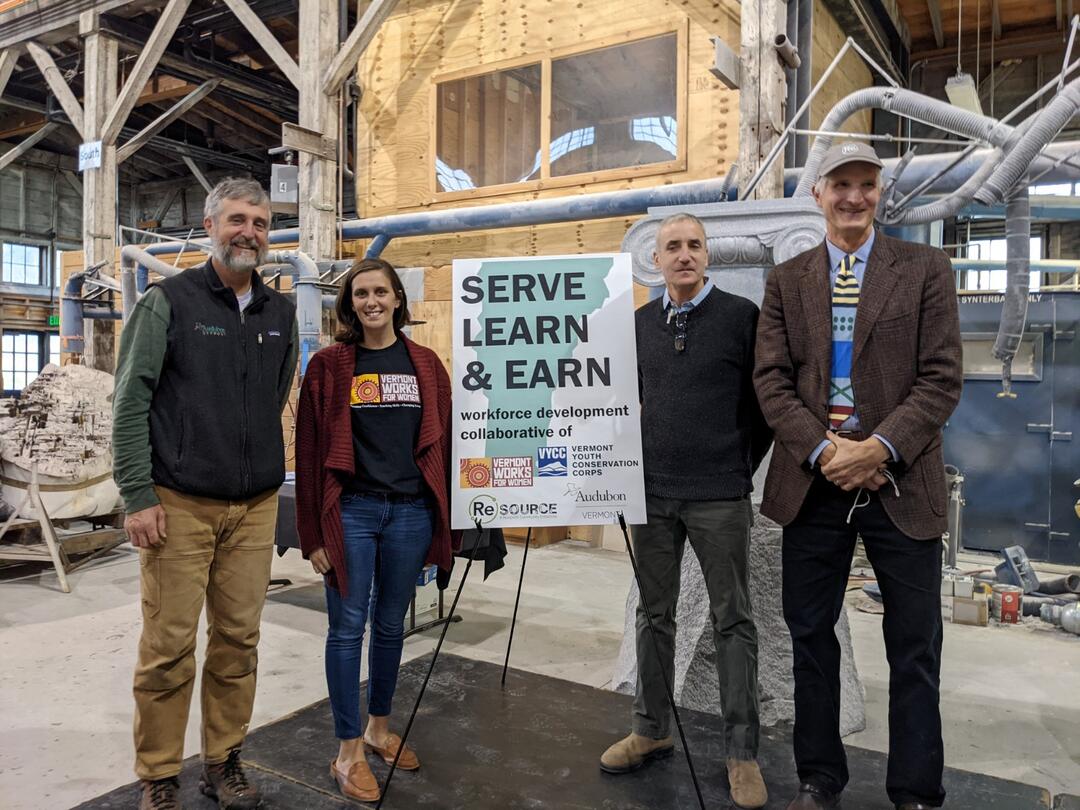Audubon Vermont is partnering with three other organizations, all with a shared goal of creating pathways to future employment and education through service learning projects. Through a program titled “Serve, Learn & Earn”, these organizations are providing hands-on learning opportunities to gain knowledge and skills that will allow participants to serve important public needs, such as projects to address climate change and protect wildlife habitat.
Audubon joined with ReSOURCE, Vermont Works for Women, and the Vermont Youth Conservation Corps to announce a grant of $1.85 million from the State of Vermont. These organizations gathered at the Vermont Granite Museum to celebrate the graduation of a group of ReSOURCE participants who completed a “Construction 101” course. At the event, all four organizations described their shared efforts to provide participants with a path to meaningful employment and affordable education in return for serving their state.

Read Seven Days’ article, Lawmakers Meet Graduates From New $1.8 Million Job Training Program and our joint press release as reprinted in VT Digger Four Vermont Nonprofits Announce New Collaborative Workforce Development Effort for more details.
Thanking the Vermont General Assembly and the Department of Forests, Parks and Recreation for their support, Audubon Vermont Executive Director, noted that “Vermont’s birds thrive when Vermont’s rural communities and our landscape of open, working lands thrive.” “These vital funds have enabled our wonderful partnership which is providing us with an opportunity to help train a new generation of people who know how to both make a living from and protect our green hills and silver waters.”
Debbie Archer, Education Program Manager for Audubon Vermont added, “We are thrilled to build on our strong experience in providing environmental education opportunities to children, by expanding our outreach to youth and young adults. Today’s young people are vital to our future and I am proud to be able to offer programs to support those who want to pursue careers in managing and caring for our natural and working lands.”
Young people in Vermont and across the country face unprecedented obstacles at the precise moment when they are ready to take on big challenges and pursue their aspirations. A global pandemic and significant economic recession, layered onto an acute and pre-existing opportunity gap, have eroded the educational and career prospects for young adults.
School and unemployment are not the only challenges young adults face. Racial injustice and our climate crisis weigh heavy on young adults, and contribute to a sharp decline in community connection and mental health. We must provide young adults what they need most: consistent and equitable access to professional and personal growth opportunities that inspire and prepare them to enter the workforce – a sense of belonging and an active community are of paramount importance. And, in providing these opportunities, we need to draw on different perspectives and allow new voices to be heard. We see paid service and training experiences as a powerful strategy.
Young adults will complete the following types of projects that benefit and strengthen Vermont’s economy and communities:
• Forestry – Logging and sustainable silviculture across a minimum of 15 project sites on 200 acres of federal, state, municipal, and privately conserved land, resulting in improved forest health and a new generation of trained foresters
• Carpentry/Trades – Constructing and rehabilitating affordable housing, weatherizing and installing renewable energy systems, including at least one unit of new housing, a dozen or more affordable housing renovation projects, a new backcountry hut, and ~90 other projects ranging from new and repaired state park structures, garden sheds for community gardens, access modifications, and solar energy installations
• Food Security – Growing fresh, local, organic produce and poultry delivered weekly to over 400 Vermont families
• Outdoor Recreation – Building and maintaining infrastructure essential to Vermont’s outdoor recreation economy, including an estimated minimum of 25 miles of new and improved trail
• Water Quality – Improving the health of our lakes and rivers through projects that reduce polluted runoff from farms, parking lots and roads
• Wildlife Habitat – Restoring and managing open land and waterways for the benefit of wildlife through planting trees and shrubs, and removing invasive species
• Outdoor Education – Connecting hundreds of children to the natural world while gaining practical teaching and leadership skills

Just this year, Serve, Learn & Earn expects to:
• Create 418 jobs for youth and young adults in Vermont
• Complete an anticipated 3,400 participant weeks of service
• Provide $1,224,412 in earned wages and/or stipends
• Offer 147 AmeriCorps positions that lead to Segal Education awards totaling $354,730
At Audubon Vermont, Serve, Learn & Earn will fund paid postions for:
• Interns in conservation, education, and policy
• Junior Conservation Techs- high school students learning what a career in conservation could look like
• Counselors-in-Training at summer camp
• Seasonal educators at summer camp
• Two full-year AmeriCorps members: 1) Chapter Engagement and Community Science and 2) Outreach and Education
Our four organizations are equally committed to supporting members after their time working and learning in our respective programs. We are not just building pathways between our organizations, but drawing on our extensive networks of employers and educators to directly link participants with post-program opportunities.
Serve, Learn & Earn is a collaboration of four Vermont organizations: Audubon Vermont, ReSOURCE, Vermont Works for Women, and Vermont Youth Conservation Corps. Through training programs and paid service opportunities, we are working towards a shared vision: every young person should have a viable pathway to employment and affordable education in exchange for serving their state.
Gender Inclusivity: We recognize that gender is not binary, and we welcome those who identify as women, girls, transgender, non-binary, gender non-conforming, gender-questioning, and anyone who has experienced marginalization, bias, or barriers due to their gender identity.






